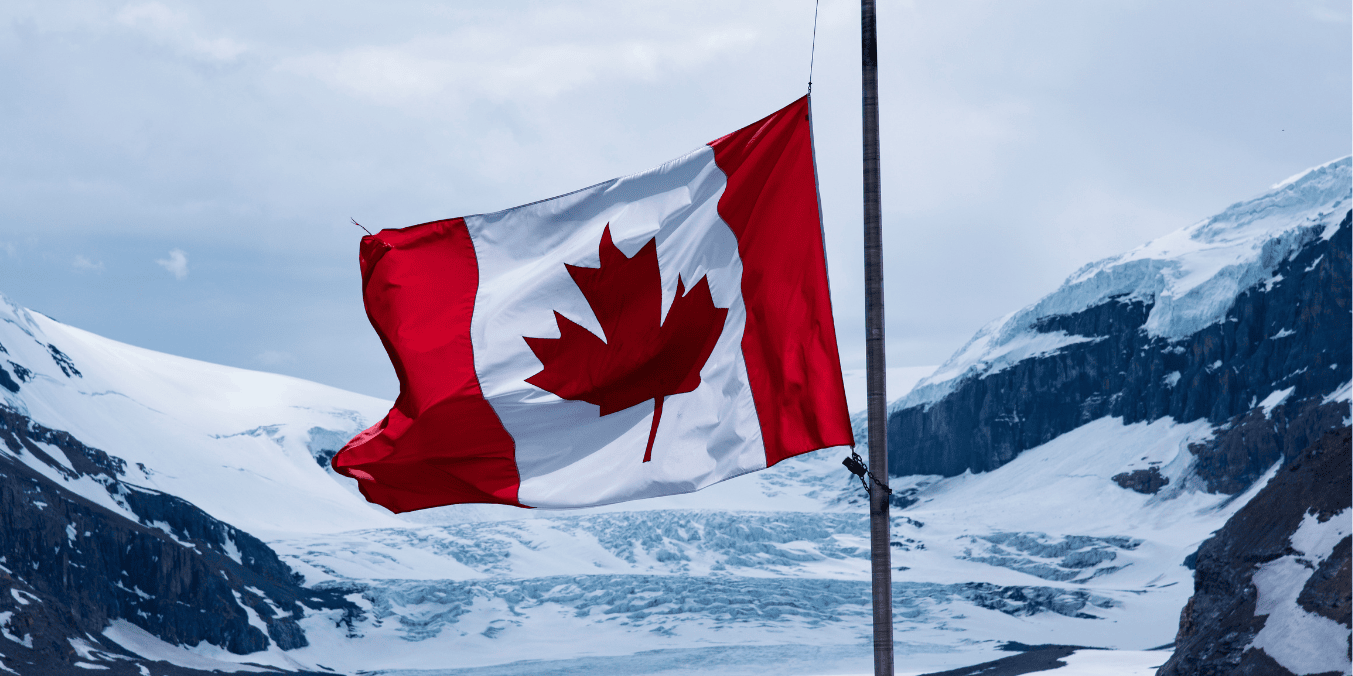Deciding between life in Canada and Australia can be challenging, as both countries offer an exceptional quality of life, breathtaking landscapes, and excellent opportunities for work and education. However, there are key differences in areas like cost of living, climate, healthcare, and lifestyle that may influence your choice.
This comprehensive guide will provide an in-depth comparison of these aspects, helping you determine which country aligns best with your goals. For those considering a move to Canada from Australia, this guide will offer valuable insights to support a well-informed decision.
Immigration news directly into your inbox
Cost of Living in Canada vs Australia
One of the first factors many people consider when comparing life in Canada vs Australia is the cost of living. Both nations have relatively high living costs, but the expenses can differ depending on the city, lifestyle, and other personal factors.
| Expense Category | Canada | Australia |
|---|---|---|
| Housing Costs (City Center, 1-bedroom) | CAD 1,500 - 2,500 | AUD 2,000 - 3,000 |
| Groceries (Monthly) | CAD 300 - 400 | AUD 300 - 500 |
| Dining Out | Varies by city, generally moderate | Higher than Canada in most cases |
| Public Transportation (Monthly Pass) | CAD 100 - 150 | AUD 120 - 200 |
| Fuel Prices | Lower compared to Australia | Higher than in Canada |
Housing Costs
Housing costs in both countries can vary greatly depending on the city or region. In Canada, major cities like Vancouver and Toronto have high rental prices, with a one-bedroom apartment in the city center typically costing between CAD 1,500 to CAD 2,500 per month. Smaller towns and suburban areas tend to be more affordable.
In Australia, Sydney and Melbourne are known for their expensive real estate, with similar apartments ranging from AUD 2,000 to AUD 3,000 per month. However, more affordable options can be found in smaller cities or suburban areas.
Food and Groceries
In terms of grocery costs, Canada and Australia are quite comparable. A typical monthly grocery bill for a single person in Canada might range from CAD 300 to CAD 400, while in Australia, it could be anywhere from AUD 300 to AUD 500. Dining out tends to be more expensive in Australia, especially in major cities, where meals in restaurants are generally pricier than in Canada.
Transportation Costs
Public transportation in both countries is widely available. In Canada, a monthly public transit pass costs between CAD 100 to CAD 150 depending on the city. Australians pay slightly more, with prices for monthly passes ranging from AUD 120 to AUD 200. Fuel prices, however, are generally higher in Australia, which makes driving more expensive compared to Canada.
Overall Affordability
Both countries have high living standards but the cost of living depends on location. Major metropolitan areas in both nations are expensive, while smaller towns and rural areas offer more affordable living conditions.

Climate Comparison Between Canada and Australia
Another major difference between life in Canada vs Australia is the climate. These two countries have drastically different weather patterns, which can significantly impact your lifestyle.
| Climate Factor | Canada | Australia |
|---|---|---|
| Overall Climate | Cold winters, warm summers | Generally warm, from tropical to temperate |
| Winter Temperatures | -10°C to -20°C (14°F to -4°F) | 5°C to 15°C (41°F to 59°F) |
| Summer Temperatures | 20°C to 30°C (68°F to 86°F) | 25°C to 35°C (77°F to 95°F) |
| Seasonal Timing | Winter: Dec-Feb; Summer: Jun-Aug | Winter: Jun-Aug; Summer: Dec-Feb |
| Weather Extremes | Heavy snowfall, freezing temperatures | Heatwaves, droughts in arid regions |
| Popular Activities | Winter sports, hiking | Beach activities, surfing, hiking |
Canada’s Climate
Canada is famous for its long, cold winters, especially in the central and northern regions. Cities like Toronto and Montreal often experience temperatures dropping to -10°C or lower in the winter, with plenty of snow. However, the summer months can be warm and pleasant, with temperatures ranging from 20°C to 30°C.
Australia’s Climate
In contrast, Australia enjoys much warmer weather year-round. Northern cities like Darwin have a tropical climate, while southern cities such as Sydney and Melbourne experience more temperate conditions. Summers in Australia can be quite hot, with temperatures often reaching 35°C (95°F) in some regions. Winters are mild, making outdoor activities accessible throughout the year.
Seasonal Differences and Lifestyle Impact
Canada’s seasonal extremes mean residents often adapt their lifestyles to the climate. Winter sports like skiing, snowboarding, and ice skating are popular activities during the colder months. Australians, on the other hand, enjoy year-round outdoor activities like surfing, hiking, and beach trips, thanks to the country’s warmer climate.

Healthcare in Canada vs Australia
Healthcare is an essential consideration when comparing life in Canada vs Australia. Both countries offer high-quality healthcare systems but operate under different structures.
Canada’s Healthcare System
Canada operates a publicly funded healthcare system called Medicare, which provides universal coverage to all citizens and permanent residents. Funded through taxes, most healthcare services such as doctor visits and hospital care are free at the point of use. However, services like dental care and prescription medications are often not covered, requiring private insurance or out-of-pocket payment.
Australia’s Healthcare System
Australia also has a public healthcare system known as Medicare. Like Canada’s system, it offers free or subsidized medical services, including doctor consultations, hospital stays, and some medications. However, Australia’s healthcare system also integrates private insurance, which can cover additional services like dental care or elective surgeries. Private insurance in Australia is encouraged through government rebates and tax penalties for high-income earners who do not have it.
Accessibility and Quality
Both healthcare systems are of high quality, though they differ in accessibility and cost structures. Canada’s system is praised for its equality, with universal access to essential healthcare services, but it is often criticized for long wait times for non-emergency procedures. Australia’s system provides more flexibility for those with private insurance, often resulting in shorter wait times.

Work-Life Balance in Canada vs Australia
Both Canada and Australia are known for promoting a healthy work-life balance, but there are subtle differences in work culture that set them apart.
Canada’s Work Culture
In Canada, the standard workweek is around 40 hours, with most employees working from 9 AM to 5 PM. Canadians generally value maintaining a balance between work and personal life, and overtime is typically compensated. Paid vacation days range from 10 to 20 days per year, depending on the employer and the length of service. Canada also offers generous parental leave policies, with up to 18 months of leave for new parents, part of which is covered by Employment Insurance.
Australia’s Work Culture
Australia also has a 38- to 40-hour workweek, but the atmosphere tends to be more laid-back compared to Canada. Australians generally place a strong emphasis on relaxation and leisure, which is reflected in their more flexible work environments. Workers in Australia are entitled to a minimum of 20 paid vacation days annually, and employees are also eligible for long service leave after 10 years of continuous employment.
Education Systems in Canada vs Australia
For families and individuals planning to further their education, both countries offer strong education systems. However, there are differences in their structures and strengths.
| Education Factor | Canada | Australia |
|---|---|---|
| School Levels | Primary, Secondary, Post-Secondary | Primary, Secondary, Tertiary |
| Compulsory Education Age | 5/6 to 16/18 (varies by province) | 6 to 16 (varies by state/territory) |
| Public Education | Free for citizens and permanent residents | Free for citizens and permanent residents |
| School Year | September to June | January to December |
| Higher Education | Globally recognized universities and colleges | Highly ranked universities and VET programs |
| Tuition Costs | Lower than the U.S., expensive for internationals | High for international students |
Canada’s education system is well-rounded, with a strong focus on academics, arts, and sports. Australia’s education system also emphasizes a balanced education, but it places a particular focus on literacy, numeracy, and critical thinking.

Cultural Differences and Social Life: Canada vs Australia
While both countries are culturally diverse and welcoming to immigrants, their social norms, values, and lifestyles differ.
Cultural Diversity
Canada is known for its multiculturalism, with major cities like Toronto and Vancouver hosting diverse communities from around the world. The country embraces a “cultural mosaic,” encouraging the preservation of distinct cultural identities.
Australia is similarly diverse, particularly in cities like Sydney and Melbourne, where you’ll find a mix of European, Asian, and other global influences. Australia is often referred to as a “melting pot,” where various cultures blend to create a unique national identity.
Social Norms and Values
Canadians are known for their politeness, respect, and inclusivity, with an emphasis on equality. Australians, on the other hand, are characterized by their laid-back and direct nature, with a strong focus on fairness and the “fair go” mentality. Both cultures value community and outdoor lifestyles, but Australia’s warm climate fosters a more outdoor-centric way of life.
Are you ready to get started, or not sure which option is best for you?
Find out how you can move to Canada.
Conclusion: Life in Canada vs Australia—Which is Right for You?
Choosing between life in Canada vs Australia depends on your preferences and lifestyle goals. Canada offers a diverse, multicultural society with strong public services and a range of seasonal outdoor activities. Australia, with its warm climate, relaxed lifestyle, and dynamic cultural mix, is ideal for those who enjoy year-round outdoor activities and a more laid-back social environment.
FAQs:Life in Canada vs Australia
Both countries offer excellent living standards, but the better option depends on your preferences. Canada’s colder climate and multicultural environment may appeal to some, while others may prefer Australia’s warmer weather and relaxed lifestyle.
Salaries in both countries are competitive, but Australia generally offers higher wages in certain sectors, such as mining and healthcare. However, the higher cost of living in Australian cities can offset the salary differences.
Both Canada and Australia have strong economies. Canada has a larger overall economy, but Australia often excels due to its trade relationships with the Asia-Pacific region.
Beauty is subjective, but Canada is known for its mountains and forests, while Australia is famous for its beaches and unique wildlife.
Both countries have excellent healthcare systems. Canada’s public healthcare covers more at the point of use, but Australia’s mix of public and private care allows for shorter wait times and more flexibility.
Both countries have welcoming immigration policies, but the ease of immigration depends on your qualifications and which program you apply through. Canada’s Express Entry and Australia’s skilled migration programs are popular options.
Julce
Julce is an expert content writer specializing in topics about Canada, adept at blending practical advice with engaging stories that capture Canadian life.
Start Your Canadian Immigration Journey
Our experts make the process clear, stress-free, and successful, so you can move forward with confidence and focus on what matters most.

Get Started Today
"*" indicates required fields
